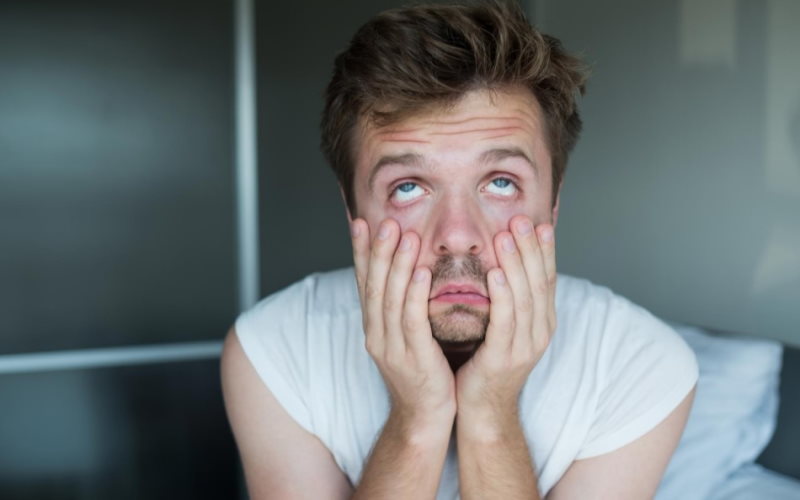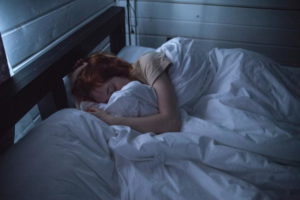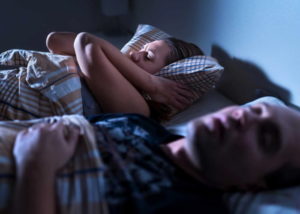A good night’s sleep is as important as a healthy diet and exercising. It allows the mind and body to recharge, making you feel fresh and ready to conquer the day when you wake up. It facilitates numerous bodily functions, staves off diseases, and keeps the body strong and the mind sharp. Unfortunately, today’s hectic world keeps most people from getting a healthy amount of sleep on a regular basis. People today are sleeping way less than they did in the past.
Sleep disorders specialists have always warned about the dangers of not getting enough sleep. But how do you know you’re not getting enough sleep? More importantly, when should you see a specialist for sleep loss and sleep disorder problems?
The dangers of sleep disorders and sleep loss
First off, before you seek professional help from a sleep specialist, you need to understand why you need their help in the first place.
Sleep disorders are one or more conditions that keeps you from getting a good night’s sleep. These conditions can take a toll on your body and cause serious physical and mental problems, as well as affect your quality of life. Long term, they can lead to irritability, moodiness, and even anxiety and depression.
When you are constantly sleep deprived, you will find it difficult to function and perform normally. You will have difficulty concentrating and remembering things at home and at work. You will constantly feel sluggish and tired. In many cases, this can lead to accidents that cause serious injuries such as car crashes.
Circadian rhythm disorder
Your body has a so-called “internal body clock” which regulates your sleep and wake cycle and controls when you feel tired and ready for bed, and alert and refreshed. It is more commonly called the circadian rhythm and it works 24/7.
The sleep-wake homeostasis is linked to the body’s production level of an organic compound called adenosine. This compound is produced in the brain and is one of the brain’s chemical messengers, also known as neurotransmitters. Adenosine levels increase throughout the day as you become tired, it initiates sleep and inhibits many processes associated with wakefulness. Sleep breaks down this compound during sleep.
Another factor that influences the circadian rhythm is light. When your eyes are exposed to natural or artificial light, the special nerve region in the brain called the hypothalamus, along with clusters of cells, sends signals to the brain to determine whether it’s day or night. As natural light fades and disappears, the brain tells the body to release a sleep-inducing hormone called melatonin. As soon as the sun rises in the morning, your brain will then tell the body to release energy and an alert-inducing hormone called cortisol.
This whole process is complex, and without proper signals from your circadian rhythm, you can struggle to fall and stay asleep. You can also wake up too early and have difficulty getting back to sleep. Common symptoms of disrupted circadian rhythms include the most common sleep disorders, such as:
- Insomnia
- Difficulty waking up in the morning
- Excessive daytime sleepiness
- Sleep loss
- Poor performance (school/work)
- Poor memory, difficulty concentrating
Other dangers of poor quality of sleep include:
- Higher risk of heart disease and stroke
- Increased risk of hypertension
- Weight gain and obesity
- Poor metabolism
- Higher risk of developing Type 2 diabetes
- Depression
- Poor athletic performance
- Poor immune system functions
- Increased inflammation
- Reduced ability to interact socially
So when should you see a sleep specialist for your sleeping problems?
There are almost a hundred different specific sleeping disorders, but sleep specialists primarily focus on five disorders, namely:
- Insomnia
- Narcolepsy
- Sleep apnea
- Periodic limb movements
- Restless leg syndrome
As said earlier, sleep disorders that result in sleep loss can cause a number of serious health and mental problems. Unfortunately, many people have never been to a sleep doctor. Also, most people don’t even recognize the signs to look for with regard to their sleeping problems.
As a general rule, if you have experienced serious sleep disorders that keep you from getting a good night’s sleep for more than two weeks, then it is best to seek professional help.
Here are some of the most common sleep disorders to be mindful about:
Insomnia
If you cannot sleep or stay asleep throughout the night, you may be suffering from insomnia. This condition can be short-term or can last a long time. While this can be caused by a temporary emotional upset (worrying or grieving), many who suffer from chronic anxiety also suffer from insomnia.
The most common causes of this sleep disorder are stress, an irregular sleep schedule, and poor sleep habits. There are also other potential causes of insomnia a sleep doctor can diagnose, such as depression, anxiety, physical pain and illness, certain medications, neurological problems, etc.
Narcolepsy
This condition is characterized by uncontrolled bouts of sleep and excessive daytime drowsiness. The bouts may be sudden and can come without warning, even when in the middle of any activity such as eating, walking, and driving.
By itself, this condition is not a deadly disease. But episodes of narcolepsy can cause serious accidents that can be life-threatening. Unfortunately, most people with this condition don’t know they have this sleeping disorder.
Sleep apnea
Characterized by heavy snoring and caused by a blockage in the airway that results in disrupted breathing, sleep apnea is one of the most common sleeping disorders in the world.
Obstructive sleep apnea (OSA) is the most common form of sleep apnea. If left untreated, it can lead to disrupted sleep, daytime tiredness, and more serious health conditions such as high blood pressure and heart problems.
Periodic limb movements
Better known as periodic limb movement disorder (PLMD), this sleep disorder is characterized by repetitive jerking and/or cramping of the legs during sleep. It is the only movement disorder that happens during sleep.
The movements of the legs are repetitive and rhythmic, usually happening between every 20 to 40 seconds. It can also occur along with other forms of sleep disorders, and is often linked with restless leg syndrome. It disrupts sleep and causes daytime sleepiness.
Restless leg syndrome
Restless leg syndrome (RLS) is characterized by an irresistible and unpleasant urge to move the legs. It typically affects both legs. This movement makes it difficult, if not impossible to fall asleep. The sensation usually flares up while a person is at rest – seated or lying down.
Getting the right diagnosis for your sleeping disorders and sleep loss problems is extremely important. Talk to your sleep specialist today and get the right treatment and that much needed good night’s sleep you deserve.


























